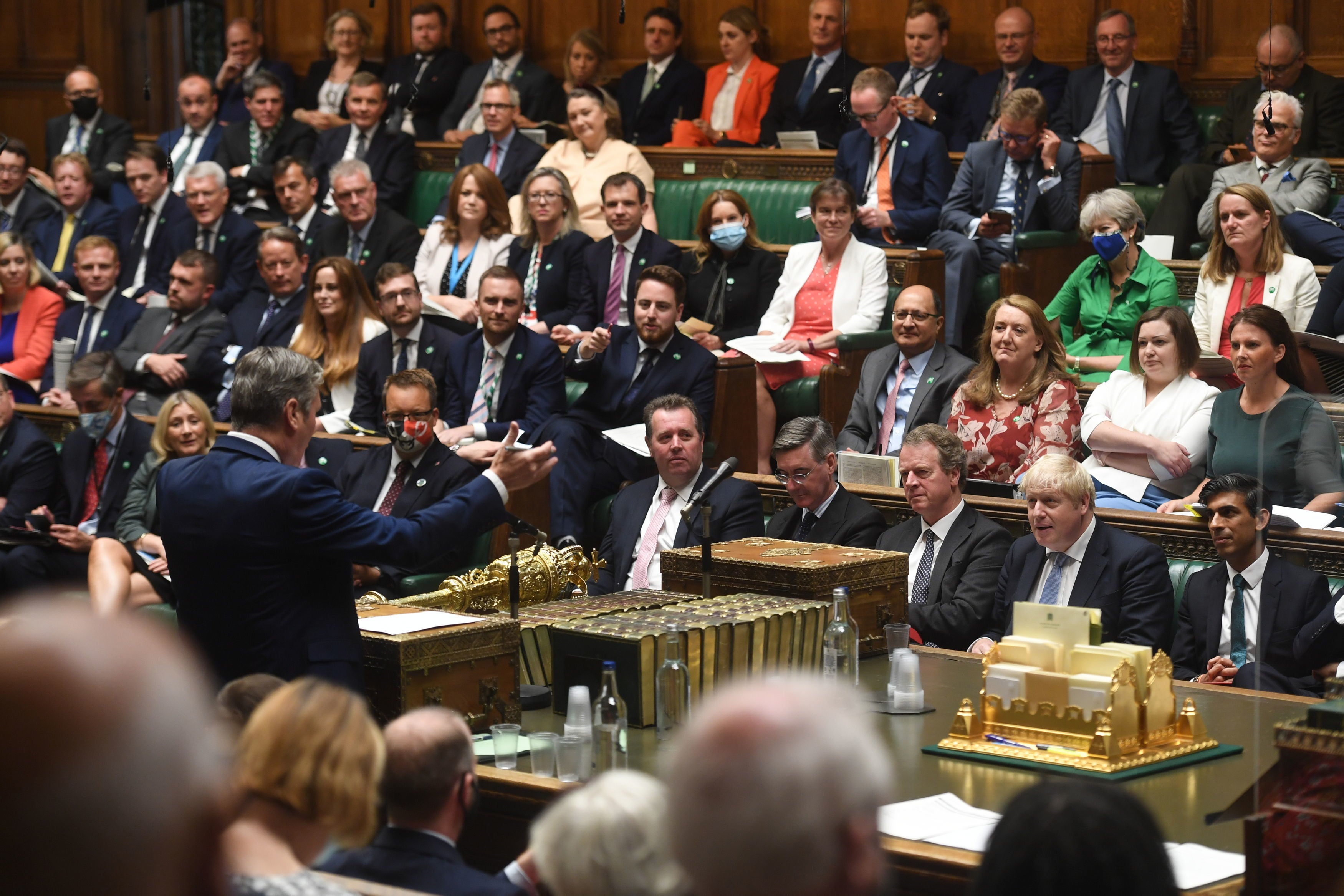What are the chances of Conservative MPs voting against their government this week?
With Commons votes looming on the health and social care levy and universal credit, the prime minister might be nervous, writes John Rentoul


Two big votes are coming up in parliament this week. On Tuesday, MPs will rush through all the stages of the Health and Social Care Levy Bill, enacting the tax rise announced – and indeed already voted on – last week. And on Wednesday, Labour will table a motion against the cut in universal credit.
Boris Johnson, who currently enjoys a working majority of 83, is unlikely to be forced to change course. It would take 42 Conservative MPs to vote with the opposition to wipe out that majority, or a larger number to abstain, and there is no evidence of a rebellion that size.
The most recent rebellions came from different wings of the Tory party. In the vote on cutting the foreign aid budget in July, 25 Tory MPs voted against the government and only two more failed to vote. In last week’s vote on the money resolution for the health and social care levy – a separate vote from the bill that is required for any tax change – a mere five MPs from the right of the party voted against, although a further 37 did not vote.
The more dangerous votes for the government will be the follow-up votes on the Health and Social Care Levy Bill on Tuesday, because they could potentially unite right-wing rebels, who don’t like tax rises, with left-wingers who agree with Labour that national insurance is an unfair way of raising the money – and both wings of the party might object to breaking a manifesto promise not to raise national insurance.
Mark Spencer, the Conservative chief whip, hoped that bouncing MPs into an early vote on the tax rise on Wednesday, on the ways and means resolution (“ways and means” being the ancient term by which the Commons asserts its supremacy over the raising of taxes), will have pre-empted any rebellion on the bill itself. This is, however, a presentational device. There is nothing to prevent MPs voting against the bill, or voting to amend the bill, even though they have already voted for the money resolution to go with it.
Much will depend on how ingeniously Tory rebels or opposition MPs can draft amendments that might be put to a vote by the speaker, Sir Lindsay Hoyle. A cleverly worded amendment is likely to trigger a larger rebellion than the simple votes for or against the bill at the beginning or end of its passage.
Meanwhile, the other effect of the government holding an early vote on the tax rise last Wednesday was that it meant postponing Labour’s vote on universal credit to this Wednesday. The government, by virtue of its majority, controls the Commons timetable. Although it is obliged by convention to allow the opposition a certain amount of parliamentary time, the exact times can be changed at short notice, which means the opposition debate on universal credit will now be this week, after ministers have spent the weekend reiterating that the decision to end the £20-a-week uplift has already been taken and cannot be changed.
It could never have been changed by a mere opposition motion in any case. Such motions may express high principle and moral outrage, but they cannot change legislation. Although Labour has experimented with some unconventional parliamentary devices, such as presenting a “humble address” to the Queen as a way of forcing the government to publish documents, it has no way of forcing a vote that would change the rules governing welfare benefits.
All it has is the power of embarrassment, which may be enough to force Spencer to revert to his recent device of ordering Tory MPs to abstain. He calculates that refusing to take part in a vote is less humiliating for the government than losing a contested vote. That means the opposition has to appoint its own MPs as tellers to count both sides of the vote, which will then be carried by 200-and-something to nil. But it would also mean that the Tory whips were not confident that enough of their MPs would support government policy in a non-binding vote, which would still hand a propaganda gift to Labour.



Join our commenting forum
Join thought-provoking conversations, follow other Independent readers and see their replies
Comments